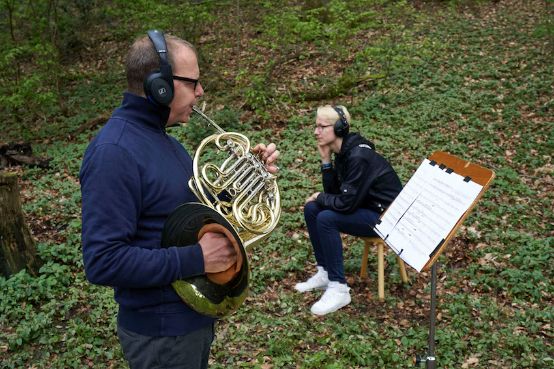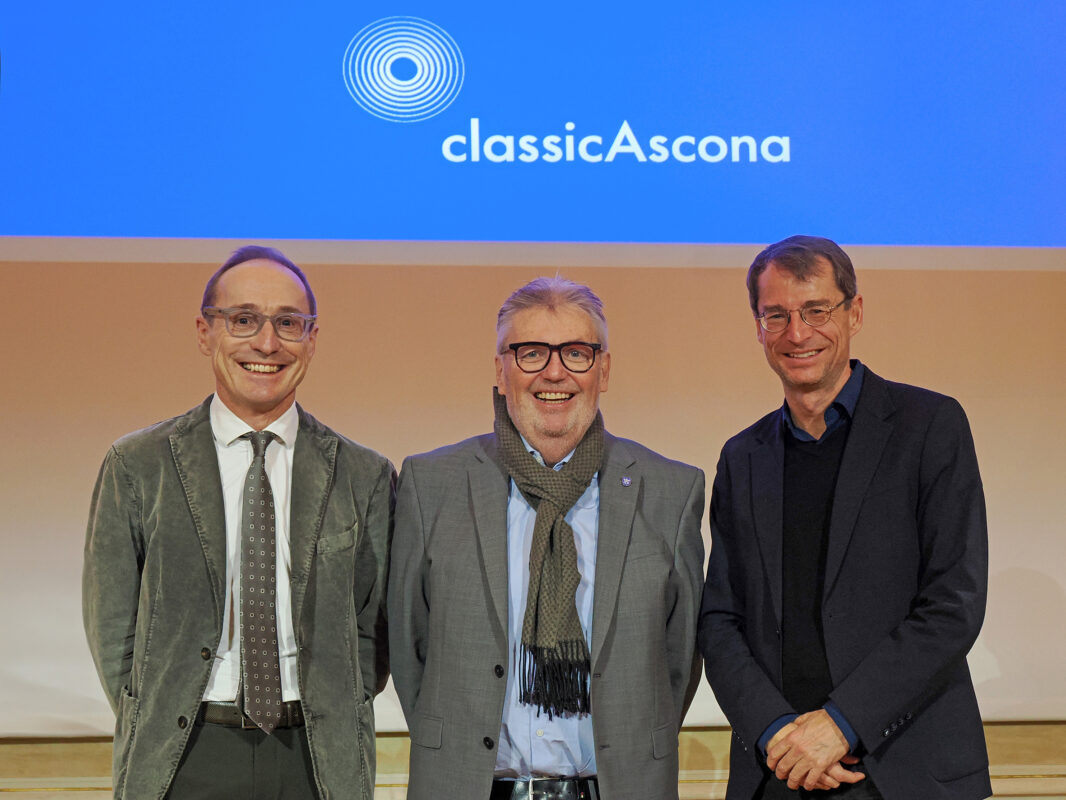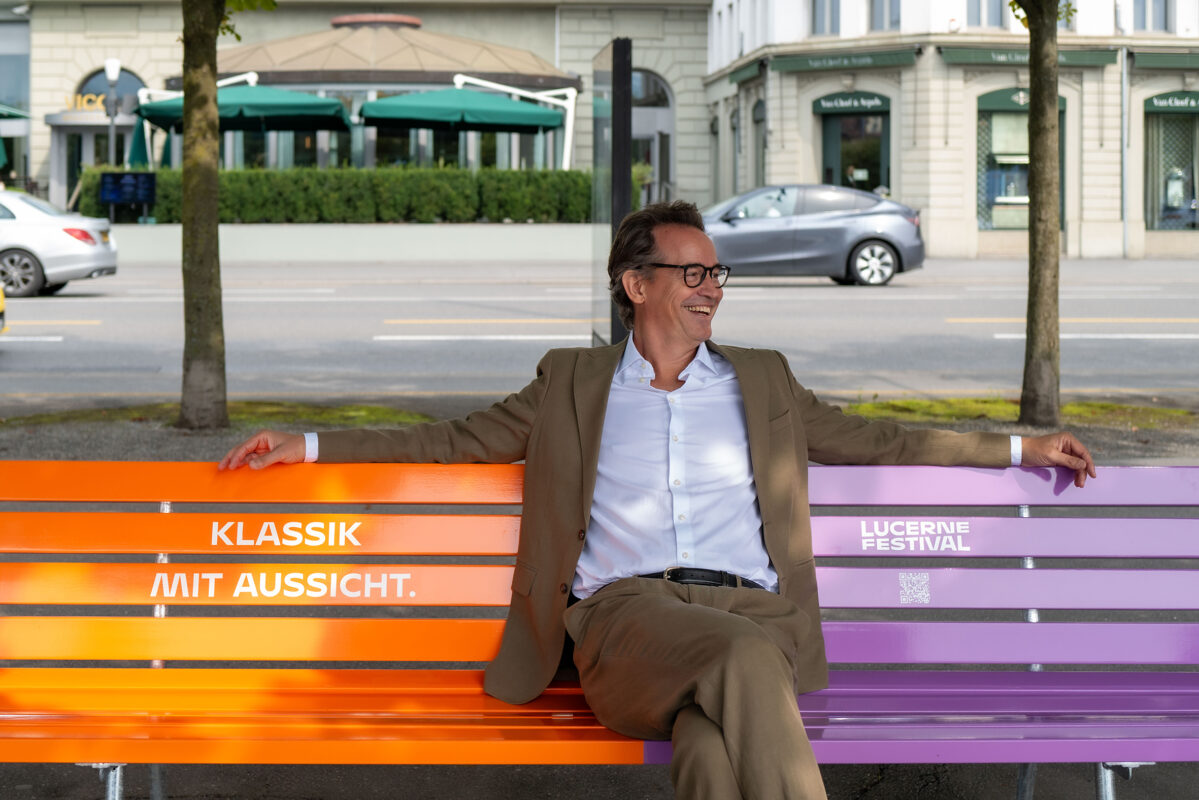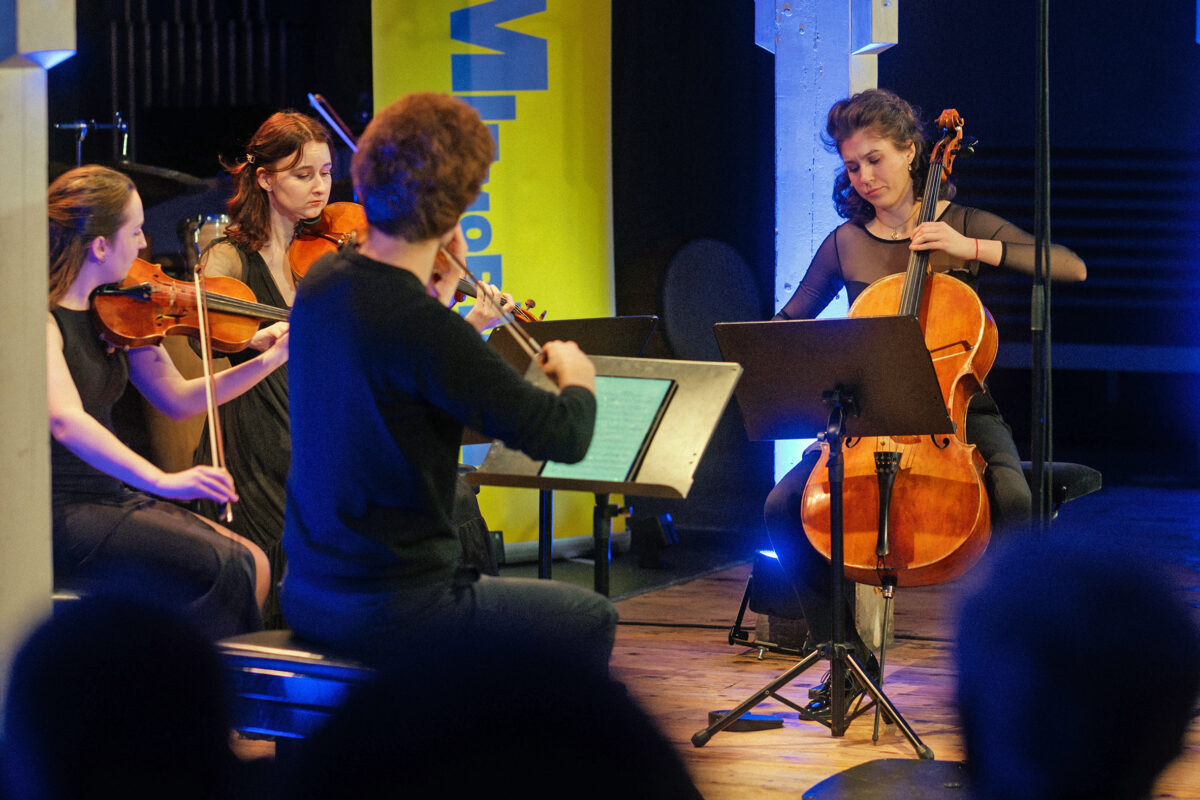Clever actionism
Sound installations by Barblina Meierhans and works by Nicolaus Anton Huber were among the highlights in Witten this year. The Days for New Chamber Music took place from May 5 to 7.

There are also beautiful places in the Ruhr region. Miners used to come to the Hammerteich in Witten when they made trips to the surrounding area on a budget. Now the sky is no longer as gray as it was 50 years ago, when the chimneys were still smoking in the industrial and coal-mining region. Now the sun is shining - and art is thriving: sound stations on the banks of the small Hammerteich pond invite you to listen. Gordon Kampe, a composer from nearby Essen, has a men's choir singing on the other bank. Small model ships also sail across the water. Kampe has equipped them with MP3 players that transport original sounds from nearby citizens. You learn something about the pond: what happened here, what is known about it.
Sounds - delayed
Wolfgang Rihm once called sound installations "sounding garden gnomes". The "sweet and cute" that he meant by this is sometimes true. In Witten, however, the sound artists show themselves from their best side. They enrich the Hammerteich with charm and very well thought-out concepts. Barblina Meierhans, born in 1981 in Burgau, Switzerland, presents a multifaceted installation entitled Let's sit down and enjoy ourselves. The brass instruments she has set up are not just beautiful to look at. They contain microphones that transmit sounds from the surroundings to headphones. A multiple fractured relationship between inside and outside: Trumpets are now, for once, not loud transmitters but silent receivers. At the same time, the "outside" can be heard differently through the filtering in the headphones: perhaps more attentive, perhaps more interested, perhaps even more alienated. In short: not so unbroken "natural".
Barblina Meierhans thought about even more. Trumpeters, horn players and trombonists are located on opposite sides of the pond. They are connected by clocks in their ears. But the laws of physics cannot be overcome. Due to the speed of sound of 340 meters per second, the impulses from the other bank, around 60 meters away, are slightly delayed. For Meierhans, this is irrelevant. A pond is not a concert hall. There is less brooding here, it is less serious, more atmospheric - and there is also time and space to talk.
Sounds - out of nowhere
The concept of the Wittener Tage für neue Kammermusik has proven itself: in addition to the traditional sound installations in the great outdoors, the focus on one composer is particularly impressive. This year's guest is Nicolaus Anton Huber, born in 1939. His works and words still sound fresh. The portrait concert, which has sometimes been lengthy in recent years, turns into amusing fun. In an eloquently relaxed manner, Huber combines thoughts on Marxism with biographical episodes and conceptual ideas. Even such seemingly simple concepts as in the Music for violin alone (1962) are still haunting. The six "movements" consist of various patterns of individual sound productions. After his studies, Huber reflected on Anton Webern's music in this way. Extreme sparseness, reduction, but also wit characterize this music, which has a long-term effect. Huber's "musical actions" are a particular challenge for the performer. Not losing the tension between the actions, while at the same time constantly regrouping his thoughts - trumpeter Paul Hübner succeeds in more than just this in Huber's solo piece Doux et scintillant (2004) is extraordinary. The way Hübner makes the notes on his trumpet sound delicately out of nowhere in multiple pianissimo is as impressive as it is overwhelming.
There were a little too many string quartets at these Wittener Tage. Perhaps also a little too many old acquaintances such as Philippe Manoury or Brian Ferneyhough (for whom, however, an uncharacteristically flexible Rebranding for string quartet and ensemble). All in all, the still so-called "new music" showed itself from its best side - in all its fascinating sonority and boundlessness.








